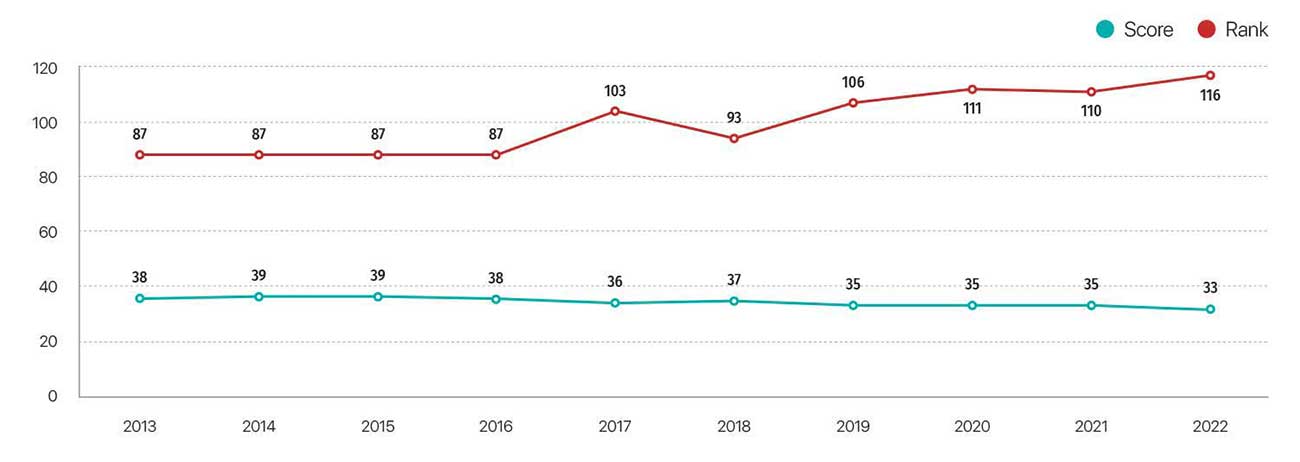Mongolia’s position on corruption indices remains poor. Mongolia scored 33/100 and ranked 116th out of 180 countries in the 2022 Transparency International’s Corruption Perception Index.
Mongolia’s Corruption Perception Index
Source: Transparency International
The US Embassy in Mongolia highlighted that conflicts of interest, lack of transparency, limited access to information, an underfunded civil-service system, low salaries, and limited government control of key institutions are the factors contributing to corruption.
In Mongolia, the Independent Authority Against Corruption (IAAC) is the government agency that takes a leading role in both promoting the understanding of anti-corruption and investigating corruption cases.
The IAAC receives annual declarations of assets and income of public officials, and, in the event of significant changes, the agency inspects and monitors the legitimacy of the person’s income.
The Law of Mongolian Criminal Procedure Cod states that, an investigator from the IAAC shall investigate a corruption case based on a complaint, decide on whether to open an inquiry case, and immediately notify the prosecutor.
To improve the legal environment for reporting corruption cases, the government has submitted a bill on the legal status of whistleblowers to the Parliament for discussion in 2021. The bill provides for the protection of whistleblowers who inform on illegal activities for the sake of public interest in addition to a reward system.
The Mongolian government is taking measures to improve transparency, including implementing electronic tenders for most government procurement and contracting. In the framework of e-governance development, the country is actively working to reduce the bureaucracy of the civil service through digitalization and has successfully integrated more than 800 public services.
As the independence of judges is an important factor in fighting against corruption, the Mongolian parliament revised the Law of the Judiciary to bring it into line with the amended constitution in 2021. The law limits the powers of the government, parliament, and the president to influence the selection and removal of judges and vests the Judicial Disciplinary Council with responsibility for disciplining jurists, except in matters involving criminal acts.
The 2022 Mongolia Investment Climate Statement released by the US Embassy in Mongolia noted that investors have praised these judicial reforms, saying they are helping to restore judicial independence severely.
